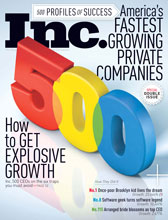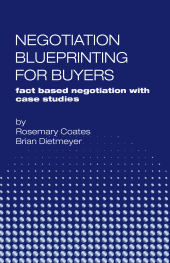 "The ability to tactically engage others in the face of impending power implosions and redirect potential negative and destructive energies toward a greater positive outcome is the mark of a true leader in today’s workplace," states Dr. Jeffrey Magee. He continues with, "It’s all about egos, competitiveness, saving face, and not being seen as the one having to make a concession that leads to a need to win at any cost! Many times it is this cost of power struggles that, in the final accounting, leads to significant loss of true gains and wins for the greater whole because individuals get caught up in the minutia of petty struggles. And from there, a pattern develops whereby struggles become the norm."
"The ability to tactically engage others in the face of impending power implosions and redirect potential negative and destructive energies toward a greater positive outcome is the mark of a true leader in today’s workplace," states Dr. Jeffrey Magee. He continues with, "It’s all about egos, competitiveness, saving face, and not being seen as the one having to make a concession that leads to a need to win at any cost! Many times it is this cost of power struggles that, in the final accounting, leads to significant loss of true gains and wins for the greater whole because individuals get caught up in the minutia of petty struggles. And from there, a pattern develops whereby struggles become the norm."
One organization that took on a challenge of true leadership in today's workplace as it's described above is Nalco, an Ecolab Company. With more than $4.25 billion in annual revenues, Nalco is the global leader of sustainability solutions for water, energy, and air. The company’s 12,500 employees – 7,000 of whom are sales engineers – serve 50,000 customer locations in more than 150 countries. The scope of this initiatve was Nalco’s Water and Process Services segment, and within that segment, the Key Account Management (KAM) program, employing 80 Key Account Managers who form a seasoned and highly skilled team focused on Nalco’s top customers. Solutions for these customers combine environmental benefits with economic gains stemming from innovative water treatment, process improvements, energy savings, maintenance and capital expenditure avoidance, and product quality improvements.
The Business Problem & Compelling Events
In 2008, when the global economic environment produced one of the most competitive markets in history, the Nalco KAM program found itself scrambling to protect the value of each customer solution. This translated into visible and significant business issues, including margins eroding at an unprecedented rate, account attrition rates climbing and stalled technology deployment and new account production.
A formal negotiation effectiveness benchmark study conducted by Think! Inc. identified the following issues as contributing factors; percentages shown below indicate Nalco cross-functional leaders who “agreed” or “significantly agreed” with each corresponding statement:
External market factors impacting negotiation were on the rise, such as:
-
More professional and skilled procurement buyers .... 100%
-
Customers were more price and commodity focused, demanding more concessions .... 75%
-
KAM team was facing more irrational competitive behavior .... 75%
Nalco’s strategic reaction to these market factors was insufficient to meet the market forces:
-
KAM team negotiation skills not on par with procurement counterparts .... 100%
-
Account management/sales strategy strong but negotiation strategy non-existent .... 100%
-
Negotiation decision making was highly centralized, leaving little autonomy in the hands of the KAMs .... 92%
-
Cross-functional departments who influenced a deal were acting independently, each with its own goals and objectives. This ‘silo’ approach was often at odds with achieving an optimal negotiation outcome .... 52%
Nalco’s tactical reaction to these market factors was equally insufficient:
-
No well-defined process for negotiation, i.e. tendency to react and take an ad hoc approach rather than a proactive, fact-based, systematic approach .... 100%
-
No well-defined strategy for irrational competitive behavior .... 100%
-
KAM team not trading in exchange for customer demands, i.e. they were giving things away without getting anything in return .... 100%
One hundred percent of those surveyed agreed that an organizational negotiation competency was needed to combat market conditions, and the decision was made to choose a solution that would not only tackle the concerns listed above but would also turn a seemingly soft skill, as negotiation is so often tagged, into a hard skill (defined as a measurable and repeatable business process). Nalco set out to build both KAM and organizational competency that would build courage, reduce variance in outcome and produce measurable impact, one deal at a time.
Their Results
Less than two years into implementation, Nalco has shown impressive results. Stemming back to the compelling events that propelled them to action, success measures were captured as follows:
-
Concepts are embedded in our sales culture as evidenced by common language and negotiation blueprint technology used
-
More than $3.2 million in revenue attributed to process
-
New technology deployment up 160% over previous year
-
New account production up 40% over previous year
-
Win : Loss against No. 1 and 2 competitors was 8 and 10:1 respectively
If you'd like to know more about how Nalco achieved these results, request the ROI Case Study.
To read Dr. Jeffrey Magee's complete post and his ten ways to create "oneness," go to: Diffusing Defensiveness: Preventing Power Struggles for Oneness.






